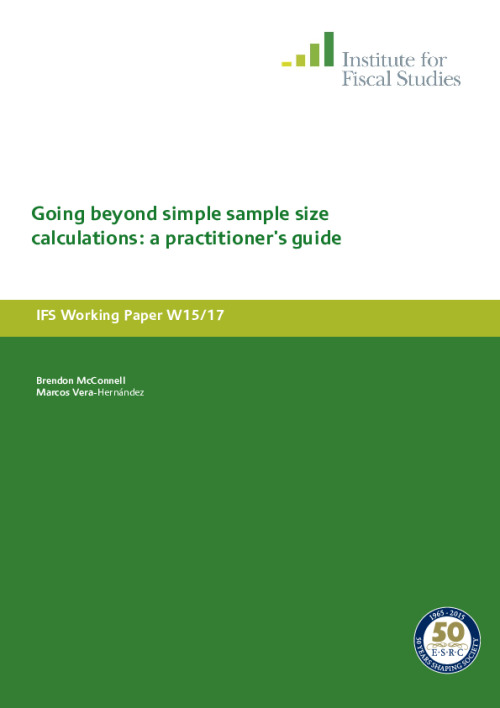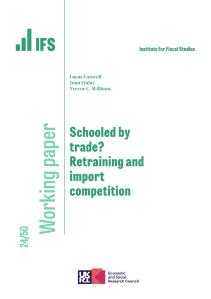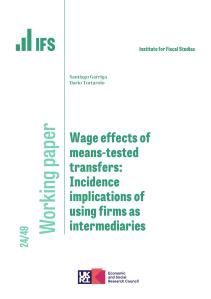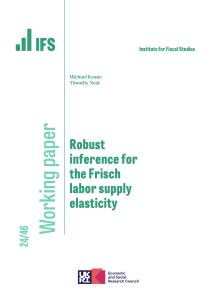Downloads

WP201517_update_Sep15.pdf
PDF | 661.41 KB
Basic methods to compute required sample sizes are well understood and supported by widely available software. However, the sophistication of the methods commonly used has not kept pace with the complexity of commonly employed experimental designs. We compile available methods for sample size calculations for continuous and binary outcomes with and without covariates, for both clustered and non-clustered RCTs. Formulae for both panel data and unbalanced designs are provided. Extensions include methods to: (1) optimise the sample when costs constraints are binding, (2) compute the power of a complex design by simulation, and (3) adjust calculations for multiple testing.
Authors

Research Fellow University College London
Marcos is a Research Fellow at IFS, an Affiliate at the Rural Education Action Program and a Professor of Economics at the University College London.

Brendon McConnell
Working Paper details
- DOI
- 10.1920/wp.ifs.2015.1517
- Publisher
- Institute for Fiscal Studies
Suggested citation
McConnell, B and Vera-Hernandez, M. (2015). Going beyond simple sample size calculations: a practitioner's guide. London: Institute for Fiscal Studies. Available at: https://ifs.org.uk/publications/going-beyond-simple-sample-size-calculations-practitioners-guide (accessed: 28 October 2024).
More from IFS
Understand this issue

Where next for the state pension?
13 December 2023

Social mobility and wealth
12 December 2023

Autumn Statement 2023: IFS analysis
23 November 2023
Policy analysis

The effect of Sure Start on youth misbehaviour, crime and contacts with children’s social care
This report studies the impact of Sure Start, which supported families of under-5s, on children’s behaviour, youth offending and social care contacts.
23 October 2024

Options for the 2024 Spending Review and beyond
We examine the challenges facing public services and the Chancellor’s public spending options at the forthcoming Budget and Spending Reviews.
10 October 2024

Adult social care in England: what next?
We set out the major challenges facing the adult social care system in England and explore potential future developments for the sector.
10 October 2024
Academic research

Schooled by trade? Retraining and import competition
We study the interaction of retraining and international trade in Germany, a highly open economy with extended state-subsidized retraining programs.
28 October 2024

Wage effects of means-tested transfers: Incidence implications of using firms as intermediaries
We show that how countries disburse tax credits matters for economic incidence by exploiting reform to the disbursement of child benefits in Argentina
22 October 2024

Robust inference for the Frisch labor supply
The Frisch labor supply elasticity plays a key role in many economic policy debates, but its magnitude remains controversial.
21 October 2024